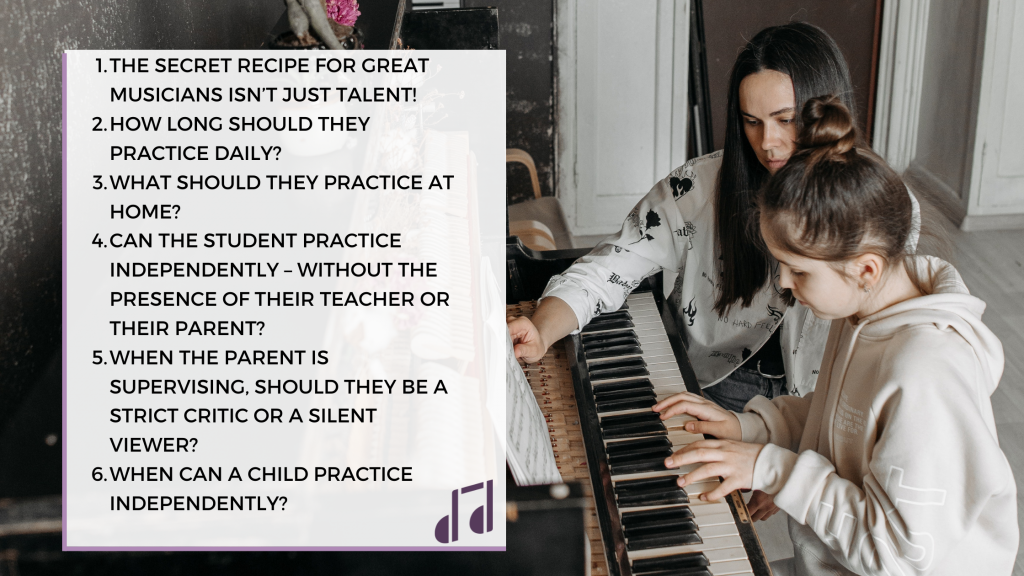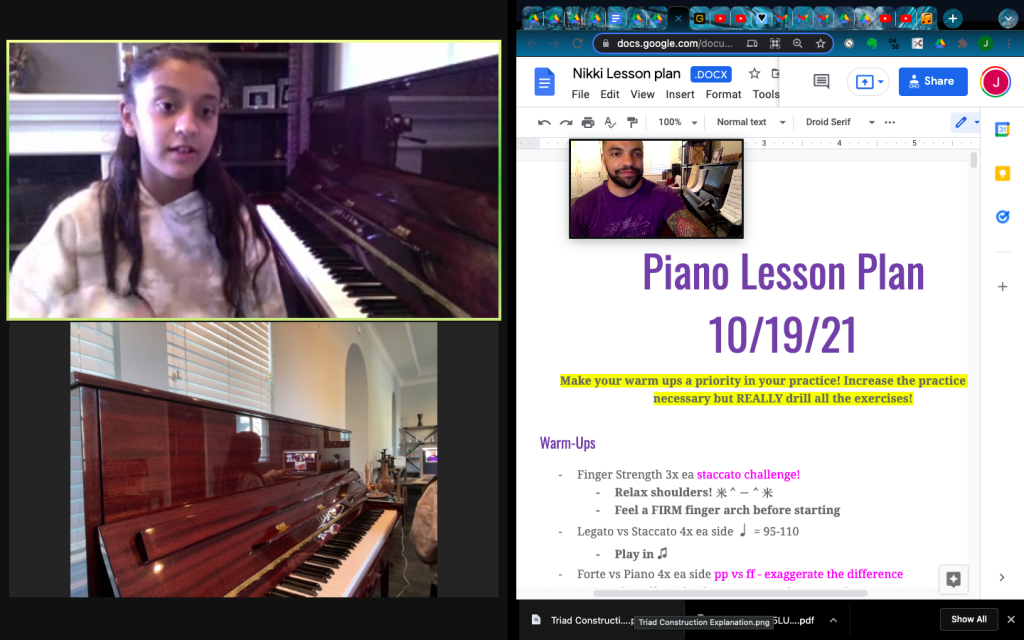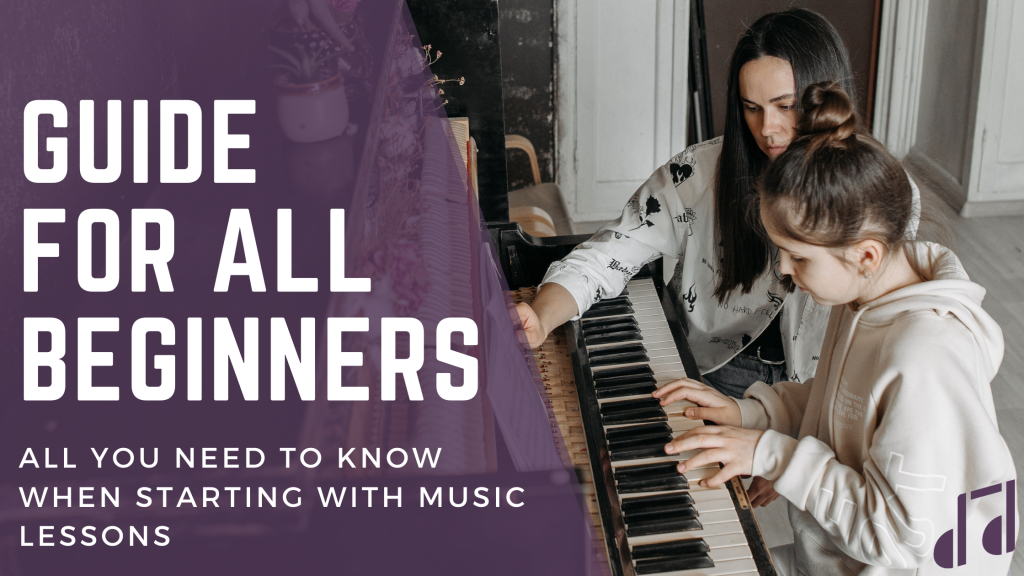Lesson Tips for Parents
Guide for all beginners – All you need to know when starting with music lessons
Whether we start something new, is it going to school, a new hobby, or even a new job, we mostly don’t know what can we expect or how to address it properly. So, we start asking many questions to get the full picture as soon as possible. And that is praiseworthy!
Therefore, students and parents, don’t be afraid of the beginning, because in this text we will give you a full guide on how to start your music education correctly! We will share with you everything that will make a great starting foundation and effective progress for all lessons that are ahead of you.

1. The secret recipe for great musicians isn’t just talent!
Many students and parents do not see the big trap that can result in slower progress of music education, and that is inordinately practice. Unfortunately, playing an instrument isn’t only based on adopting certain information that you can remember and reproduce equally well after a long time without repetition – playing the piano is a skill that requires regular practice.
Some information from this domain, such as notes and musical terms, can be memorized without frequent repetition, but playing previously learned and mastered songs requires practice even after a successful performance.
For that reason, although the teacher reminds the student every class that they don’t forget to practice at home, it is recommended that the parent joins in developing this habit. And by that, it means to explain to them why exercise is important, as well as to remind them to practice every (second) day. So, regular practice is the secret recipe for every successful musician!
2. How long should they practice daily?
The best advice for all students is to practice their instrument every day, but how much exactly varies from student to student. All instructions, as well as the recommended exercise time, are systematically organized according to age and previous general knowledge. Our professional teachers will give you exact information after each lesson.
3. What should they practice at home?
At San Ramon Academy of Music, at the end of a lesson, each student gets a detailed written report in which the progress is explained, as well as the practice plan for next week. All of the tasks are carefully created according to the student’s current knowledge and each of them represents a new step up in his progress. Everything written in the lesson’s report is adjusted to the period until the next lesson if the student practices their instrument regularly. So, you don’t need to worry if you forget what should you practice!

4. Can the student practice independently – without the presence of their teacher or their parent?
That depends on the age of the student. If your child is older than 12 years, his sense of obligations is mostly developed, but for younger, it is recommendable that the parent joins this process! Although the teacher explains in detail the ways of practicing the composition in each class, it is also advised that the parent be present during the first few weeks of their practice at home. In addition to the fact that you will be sure that the child is dedicated to his task, your child will also work harder on achieving new skills with your supervision.
5. When the parent is supervising, should they be a strict critic or a silent viewer?
Both of these extremes can create a wrong image of piano education for a child – too much rigor will scare the child of too much obligation, tire him and turn him away from further musical challenges, while passive observation will not develop an awareness of the final result and desire for improvement.
The best results are achieved by balancing these two extremes together with optimism, enthusiasm, and, especially, understanding. Every child will encounter new challenges during their practice, in which mistakes will often happen. This should not discourage them or the parents, but with a smile, together you will overcome all of them. Some challenges will be overcome easily, while the others will take more time and practice. Whatever the case – do not give up and do not be afraid of mistakes!
A great way to develop proper independent thinking in your child is by the questioning method. It is advised that the parent does not speak directly about the mistake or the solution for the current obstacle. Ask them questions that will lead them to the correct answer and the next practicing steps. With that approach, they will acquire knowledge more effectively, and at the same time, the child will develop independence, as well as awareness of his results and the goal towards they are striving for.
For more methods on how to approach your child when they are practicing their instrument, you can read our previous blog post Should I help my child when they practice their instrument?
6. When can a child practice independently?
When you see that your child approaches their instrument without your notice, with focus, plan, and engagement, it can be confirmed that he or has successfully achieved their having for practicing. Support him, follow the instructions, enjoy the process and be optimistic, because the music journey can be such an amazing experience for everyone!
If you need any help, we are here if you have any more questions!
Book your FREE trial lesson with us by clicking the links below!
Individual Lessons: Piano, Guitar, Violin, Singing, Trumpet, Composing!

